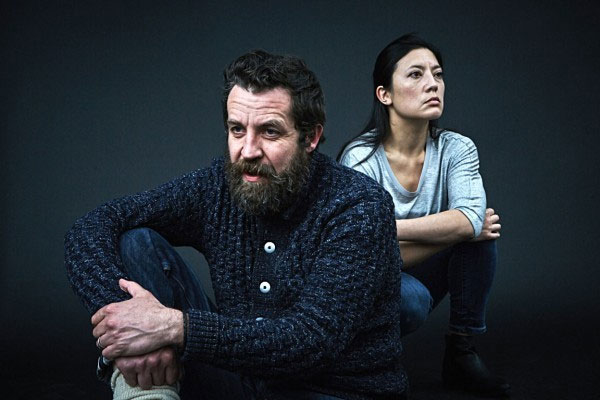Matt Trueman: British theatre has lost none of its heat

British theatre has gone off the boil, at least according to the Telegraph’s critic Dominic Cavendish. It’s not that he feels there’s been a drop in quality – far from it – but, in his round-up of the year, Cavendish diagnoses "a current affairs-shaped hole in the heart of what we saw."
"For all the many achievements on our stages this year," Cavendish wrote last week, "nothing stood out as ‘the’ play for today. The contrast between now and the post-9/11-Iraq war period, when a generation went into political overdrive, is striking."
Certainly, theatre has struggled to address the most pressing issue of the year: the rise of ISIS, the ongoing chaos of Syria and the influx of refugees into Europe. As Cavendish points out, only Anders Lustgarten has really grappled with the subject. His play Lampedusa landed in February, exactly as migrant deaths in the Mediterranean reached the front pages.
What we’re really talking about here is theatre’s speed of response. ISIS was only rebranded as such in May 2013, rising to prominence the following summer having taken Raqqa and Mosul. It was only really when Western hostages were executed – first James Foley, then David Haines – that the media focused on the story. For theatre to be landing definitive plays about the subject, given turnaround times, it would have had to be one step ahead of the media, arguably even of ISIS itself.
However, Cavendish contends that theatre is "a medium inherently fit for rapid, up to the minute responses." Well, it is and it isn’t. Theatres are largely programmed a year or so in advance, though the art-form’s liveness means it can be ad-hoc and fleet of foot using alternative formats.
If the response to Iraq seemed speedy, it was partly because British theatre had just discovered verbatim theatre, and partly because that war had been on the cards for a while previously. British and American troops entered Iraq in March 2003 and, the following November, the Tricycle staged Justifying War, Robin Norton-Taylor‘s abridgement of the Hutton Inquiry. A year later, David Hare‘s documentary play Stuff Happens was on at the National.
Today, verbatim theatre has been proved problematic: functional, yes, but malleable and mediated. It would, I suspect, struggle to convey the complexities of the amorphous conflict that has followed in Iraq’s wake.
Besides, most of the best work on the War on Terror came much later. The Tricycle’s superb play cycle about Afghanistan The Great Game premiered a full eight years after troops moved into that region (though, still a full six before they withdrew), and it benefitted immensely from that time-frame, with plays providing historical and political context, as well as reportage. Black Watch began life in 2006, Adam Brace’s Stovepipe in 2009. Even Robin Soans’ verbatim play Talking to Terrorists didn’t open until 2005, long after 9-11 itself.
True, Syria’s civil war is four years old, and it has nonetheless featured very little on our stages. Only the Finborough’s verbatim collection The Fear of Breathing by Zoe Lafferty and Lucien Bourjeily’s 66 Minutes in Damascus, part of the 2012 LIFT festival, spring to mind, though Cordelia Lynn’s Lela & Co was set in an unnamed country gripped by a similar civil war. The truth is, I suspect, that for a long time the conflict has seemed a long way away.
Expect theatre to catch up – and fast. Next March, the Royal Court stages workshopped readings of three new scripts by Syrian and Lebanese writers, following its international department’s work in the region. It did the same in Ukraine last year, premiering Maidan: Voices from the Uprising three months after initial protests in Kiev, and, before that in Palestine and Gaza. The latter trip resulted in the British premiere of Dalia Taha’s extraordinary play Fireworks, about life in Gaza under aerial bombardment, last February – a mere six months after the 2014 Israel-Gaza conflict. It was, undoubtedly, one of the most pressing pieces of theatre I’ve ever seen – proof, if ever proof were needed, that British theatre has lost none of its heat.










